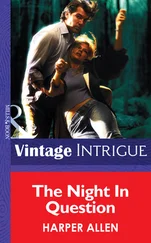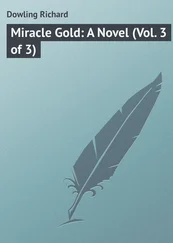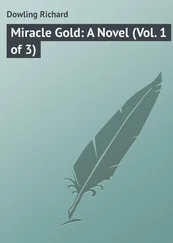Richard Gordon - A QUESTION OF GUILT
Здесь есть возможность читать онлайн «Richard Gordon - A QUESTION OF GUILT» весь текст электронной книги совершенно бесплатно (целиком полную версию без сокращений). В некоторых случаях можно слушать аудио, скачать через торрент в формате fb2 и присутствует краткое содержание. Жанр: Юмористическая проза, на английском языке. Описание произведения, (предисловие) а так же отзывы посетителей доступны на портале библиотеки ЛибКат.
- Название:A QUESTION OF GUILT
- Автор:
- Жанр:
- Год:неизвестен
- ISBN:нет данных
- Рейтинг книги:4 / 5. Голосов: 1
-
Избранное:Добавить в избранное
- Отзывы:
-
Ваша оценка:
- 80
- 1
- 2
- 3
- 4
- 5
A QUESTION OF GUILT: краткое содержание, описание и аннотация
Предлагаем к чтению аннотацию, описание, краткое содержание или предисловие (зависит от того, что написал сам автор книги «A QUESTION OF GUILT»). Если вы не нашли необходимую информацию о книге — напишите в комментариях, мы постараемся отыскать её.
A QUESTION OF GUILT — читать онлайн бесплатно полную книгу (весь текст) целиком
Ниже представлен текст книги, разбитый по страницам. Система сохранения места последней прочитанной страницы, позволяет с удобством читать онлайн бесплатно книгу «A QUESTION OF GUILT», без необходимости каждый раз заново искать на чём Вы остановились. Поставьте закладку, и сможете в любой момент перейти на страницу, на которой закончили чтение.
Интервал:
Закладка:
Nancy smiled. 'We Yankees are sharp.'
'I'll turn in, as we're up early.'
'Yes, do. Sleep well.'
He found the unlocked door before the train had shrieked through the station at Mulhouse. In the morning, on the gusty quay at Calais, he remembered that he owed her for the conductor's franc.
7
'It'll be over there. Number 272. On the corner of Oxford Circus, opposite Peter Robinson's the drapers.'
'But I'm breathless!'
'Come on! While the bobby's holding up the traffic.'
'You treat the fair sex quite horribly.'
'All Englishmen do. We expect our women to ride like express trains and dance like butterflies, to organize our domestics with the efficiency of General Kitchener, to comfort us with the tenderness of Hйloise, and to laugh at our jokes like a music-hall audience.'
It was four in the afternoon of Friday, September 17, 1909. When they had reached England the previous morning, the sun gave the cliffs of Dover the sheen of an iceberg. Now the weather had changed to a malignant misty drizzle, which soaked its way through garments with the persistence of mites through cheese, and steadily cleansed the stagnant chimney-smoke of its soot for deposit on starched collars and elaborate hats.
Eliot seemed to Nancy patriotically proud of this perversity in the weather. She held an umbrella, the other hand gathering her skirt from the slimy roadway as he seized her elbow.
The London traffic was its most chaotic of the century, horsepower competing with horse. The nimble two-wheeled hansoms, the roomier four-wheeled 'growlers', the smart coupй 'fly' hired from the livery stable (seven-and-sixpence one horse, twelve-and-sixpence two), were being jostled from the streets by the taximeter motor-cabs, far faster despite the 20 miles per hour speed limit. The horse-drawn omnibuses were being ignored for the scarlet motor ones of the London General Omnibus Company, to be stopped anywhere, the 'garden seats' on the open tops advertised as freely patronized by ladies.
Stage-coaches to Hampton Court or the races churned amid excursion motors carrying a guide for the 'trippers'. Motor cars, electric or petrol, were hireable at five pounds a day. Everywhere dodged the enthusiastic, sporty cyclist. With its electric tramways and the underground 'Tube', Eliot told Nancy imposingly, London was the most convenient of cities for getting about-so long as you had no necessity to cross the road.
Still flagrantly grasping her arm, Eliot hurried Nancy along the far pavement. Number 272 was on the sweep of Oxford Circus, a doorway between a furrier's and a trunk-maker's. The lobby inside had mustard-painted stone walls, a wooden staircase going up, an iron one spiraling into the black basement. It did not seem to Nancy likely headquarters for a man with the cure of the disease which terrified the world.
Eliot ran his eyes down a painted list of firms with offices above.
'No Munyon's. And I looked them up in Kelly's Directory this morning.' He peered at the lowest line. 'That's freshly painted. Perhaps they've moved?'
He took her elbow again to a shop he had noticed on the corner, marked with gold letters OTTOMAN TOBACCONISTS.
'You can find everything about any district from a tobacconist. Its craving is common to all classes of the world, but it's so uncomplicated an article to purchase everyone stops to justify their visit with a gossip.'
The shop was tiny and aromatic. A wall of drawers like a druggist's were labelled _Raparee, Navy Plug, Havana Perfectos._ On the counter were glass boxes of round or oval cigarettes, a blue jar marked _High Dry Toast Snuff._ A black boy in turban and curly-toed slippers stood in eternal plaster deference. The Oriental atmosphere stopped with the proprietor, a wizened, pale Cockney with gold-rimmed glasses.
'Munyons?' he repeated in a thin voice. 'They've gorn.' He drew a finger across his scrawny throat. 'Gorn bust.'
Eliot and Nancy exchanged frowns. 'Do you know a Dr Crippen?'
'Know 'im, sir? I'll say. The Doctor,' he specified with respectful familiarity. 'Such a nice polite gentleman. Never smoked, mind you-said it upset 'is heart and digestion. Never took drink, neither, except for a glass of beer what you and I'd 'ardly notice, sir. Used to come in and buy Turkish cigarettes for Miss Le Neve.'
'Who might she be?' asked Nancy.
The tobacconist looked startled. 'Ain't you one of them Yankees? Funny, so was the Doctor. Though o' course you'd 'ardly think it, 'e spoke quite like an English gentleman. You one of 'is family?' Nancy shook her head hastily. 'Miss Le Neve was 'is typist, pretty young thing, always neat, luverly dark 'air. Mind, when the doctor's business went through the sieve, you could 'ave knocked me dahn wiv a fewer. Always seemed flush wiv the bees and 'oney, the doctor. Money,' he explained, responding to Nancy's blank look.
'My business with Dr Crippen is urgent,' Eliot stated. 'Where can I find him?'
'Search me, sir. 'E used to talk of an orfice what he 'ad in Shaftesbury Avenue, opposite the Palace Theatre. P'raps 'e's gorn 'ome to roost?'
'Could you describe him?' Eliot asked.
The atmosphere chilled. 'You the rozzers?'
'Of course I'm not the police,' Eliot told him impatiently. 'I'm a fellow doctor.'
The shopman's narrowed eyes relaxed. 'Well, 'e's 'ardly bigger than Little Tich, when 'e ain't dancing on the tips of 'is boots.' Everyone in London knew the music-hall comic with boots as long as himself. 'About forty-odd, I'd say, pink as a shrimp. Sandy 'air, bit bald, moustache. Dressed neat, even smart. Wears glasses like mine. 'E's one of them people you 'ardly takes notice of, even when they're speaking to you.'
'Do you know where he lives?' enquired Nancy.
'Not the faintest, madam. I don't even know if 'e's got a trouble and strife.' She assumed this meant a wife. 'P'raps 'e's gorn 'ome to America?'
'Well? What do we do now?' she asked Eliot is disappointment, on the pavement outside.
'What everyone does when stymied in England. Have a cup of tea.'
'Yes, lets! My friends are always talking about Rumpelmayer's.'
'Rumpelmayer's? Ridiculously extravagant. Here's a Lyons teashop.'
It was crowded with shoppers, men in bowlers and top hats, women in broad-brimmed, flowered or feathered milinary, glistening umbrellas at their sides, parcels round their feet. The customers sat on cane-seated chairs at marble-topped tables, while white-aproned, lace-capped waitresses served the teapots, the plates of buttered toast and the cream pastries from stout wooden trays.
Eliot searched for a place. 'The weather's too miserable for tea.' He grasped her arm again.
'Where are we going?' She sounded alarmed as he marched her round the corner.
'For a glass of English beer and a whet of German sausage.'
The sign bore a golden crown over a Tudor rose. Eliot pushed open the door with a panel of green-tinted glass embossed, _Rose amp; Crown Ales Beers Stouts Wines From The Wood._ 'It's a saloon!' she objected forcefully.
'Perfectly respectable women pub it these days,' he assured her airily. 'There's nothing to fear, if you avoid the awful claret and hock.'
She protested, 'Were I seen inside a place like this in New York, it would be in all the papers.'
'What devilish delights accrue by sinking from the upper classes,' he teased her.
The bar was small, its dark panelling splashed with brightly polished brass, a partition with decorative frosted glass separating it from the noisy public bar next door. A red-faced man in a curly bowler hat and canvas gaiters, who smelt of oats, sat against the wall with a thin one smoking a pipe of pungent shag. The appearance of so beautiful and well-dressed a female raised their startled eyes from half-finished glasses of beer, which they were contemplating with the placid melancholy of the British enjoying themselves.
Читать дальшеИнтервал:
Закладка:
Похожие книги на «A QUESTION OF GUILT»
Представляем Вашему вниманию похожие книги на «A QUESTION OF GUILT» списком для выбора. Мы отобрали схожую по названию и смыслу литературу в надежде предоставить читателям больше вариантов отыскать новые, интересные, ещё непрочитанные произведения.
Обсуждение, отзывы о книге «A QUESTION OF GUILT» и просто собственные мнения читателей. Оставьте ваши комментарии, напишите, что Вы думаете о произведении, его смысле или главных героях. Укажите что конкретно понравилось, а что нет, и почему Вы так считаете.






